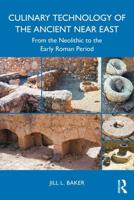Publisher's Synopsis
While many people outside India find the images, sounds, and practices of Indian performing arts compelling and endeavor to incorporate them into the "global" repertoire, few are aware of the central role of religious belief and practice in Indian aesthetics. Completing the trilogy that includes Darsan: Seeing the Divine and Mantra: Hearing the Divine in India and America, this volume focuses on how rasa has been applied in a range of Indian performance traditions.
"Rasa" is taste, essence, flavor. How is it possible that a word used to describe a delicious masala can also be used to critique a Bharata Natyam performance? Rasa expresses the primary goals of performing arts in India in all the major literary, philosophical, and aesthetic texts, and it provides the cornerstone of the oral traditions of transmission. It is also essential to the study and production of sculpture, architecture, and painting. Yet its primary referent is cuisine. This book articulates the religious sensibility underlying the traditional performing arts as well as other applications of rasa and examines the relationships between the arts and religion in India today.











